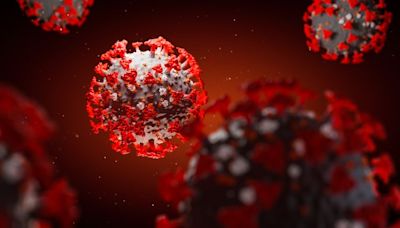Search results
Feb 6, 2023 · CDC uses viral genomic surveillance to quickly identify and track COVID-19 variants, and acts upon these findings to protect the public’s health. Some variants spread more easily and quickly than others, which may lead to more cases of COVID-19. For the most up to date information about current variants, visit CDC’s COVID Data Tracker.
- Symptoms
COVID-19 is caused by infection with a coronavirus named...
- Vaccines
Everyone 6 months and older should get an updated COVID-19...
- Definitions & Classifications
The SIG has updated its classification system and working...
- Cdc's Role in Tracking Variants
What is CDC doing to track SARS-COV-2 variants? In the...
- Variant Surveillance
Learn about genomic surveillance of SARS-CoV-2, which causes...
- How Coronavirus Spreads
There is also no current evidence that people can get...
- Ventilation
Good ventilation, along with other preventive actions, can...
- Spheres
SPHERES is a new national genomics consortium to coordinate...
- Symptoms
Mar 13, 2021 · What is a COVID-19 variant strain? Matthew Binnicker, Ph.D., Director of the Clinical Virology Laboratory: Variant basically means a mutation that occurs in the virus over time. So just with natural evolution over time, as the virus infects people, it has the opportunity to replicate its genome, and every time it replicates its genome, there ...
Nov 4, 2023 · Concern over variants, sometimes called strains, of the virus that causes COVID-19 is based on how the virus might change. A virus could get better at infecting people, spread faster or cause people to get sicker. As a virus infects a group of people, the virus copies itself. During this process the genetic code can randomly change in each copy ...
Sep 1, 2023 · It’s estimated that Delta caused more than twice as many infections as previous variants—in Connecticut, it was estimated to have been 80 to 90% more transmissible than the Alpha variant. In the U.S., in June 2021, after a steady decline in COVID-19 cases and hospitalizations, the arrival of Delta coincided with a rapid reversal of that trend.
- 065208055
- kathy.katella-cofrancesco@yale.edu
Nov 20, 2023 · To identify variants, scientists map the genetic material of viruses (known as sequencing) and then look for differences between them to see if they have changed. Since 2020, SARS-CoV-2, the virus that causes COVID-19, has been spreading and changing globally. These changes have led to the detection of variants in many countries around the world.
Jun 14, 2022 · Scientists have also examined the T cells produced by Covid-19 vaccines to see how well they fare against Omicron. Early studies suggest that these T cells still recognize the Omicron variant .




